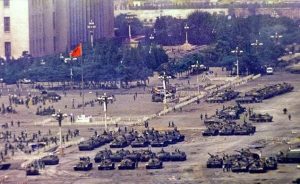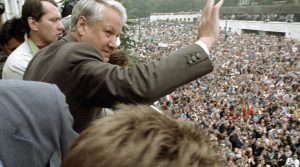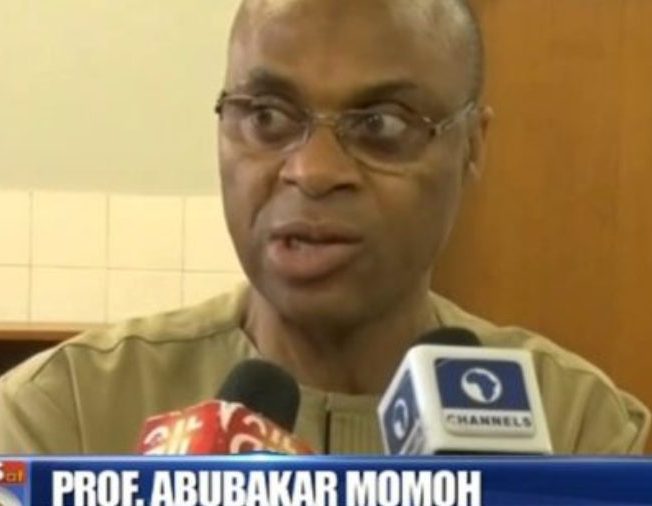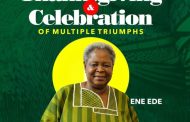It is exactly one year today Prof Abubakar Momoh passed on. There has been a very steady remembrance of him since then, in the past one week and in the coming week. But why? Could that be because he is a radical? But, what is it to be radical? What is radicalism and when is it radical or otherwise?
Born 1964, it was, however, between 1987 and 2017 that he came into his own in terms of a voice as an academic. What that means is that we can only define his radicalism in relation to his standpoint on the definitive current that drove the social world during those thirty years. His radicalism cannot be defined outside that social and time context. The argument here is that the period in question has been a hostage of reform, from the defunct USSR in 1985 to China since 1989 to Nigeria since 1986 till today. Although he spoke and wrote a lot, it is safe to isolate what he said in a rather comparatively obscure text he edited, (Momoh A, (ed) (2005), Nigeria and the Neo-Liberal World Economic System, Abuja: Friedrich Ebert Stiftung).
To the extent that it is possible to summarise the Introduction he wrote for the book, Momoh is saying that the possibility for development through a purely market based economy in Africa doesn’t exist. He put this to weak or non-existent industries, serious conflicts arising from arbitrary and exclusionary sense of citizenship, resulting in social tension that there is no social mobilisation to mitigate due to weak foundation of nationhood in various African countries. Late colonialism left the most bestial scares and legacies, having learnt from the examples of India and other parts of Asia, he asserted, leaving Africa with a misplaced view or the illusion of strategic entry into Western markets in the form of African Growth and Opportunity Act, (AGOA) and the Economic Partnership Agreement. But, in supporting divestiture and competitiveness, African industries have shut down as a result of de-industrialization, says Momoh. The citizenship crisis arising from the resultant search for meaning and associated contestation have, in his view, “posed a challenge in itself to governance and the constitution”. He concluded that reform explains why the typical African country is either engulfed in war, just getting out of war or about to re-enter war.
 The above strong claims holds him up as a Pan-Africanist in the era of reform, considering the damage reform had done across the world by the time he was writing in 2005, from the defunct USSR to China. Today, China has risen to so great a height that few are talking of how reform almost unmade it if it didn’t have a statesman with Deng Xiaoping’s stature and moral authority. Tienanmen Square was a revolt whose management tested state power to the extreme. The state confronted a revolution from nowhere involving students, activists and agitators of different orientations who turned up for the mourning of a departed communist official but ended up occupying the Square and, instead of mourning, demanded for ‘democracy’. It was taking too long, becoming really embarrassing as there were some commanders not quite in the mood to release troops unless Deng approved of it, even though Deng was no longer the Head of State but party leader. Deng eventually did and it was messy but not as messy as the representation of it in the liberal press as the irrational, authoritarian and human rights violating communists. China learnt her lessons.
The above strong claims holds him up as a Pan-Africanist in the era of reform, considering the damage reform had done across the world by the time he was writing in 2005, from the defunct USSR to China. Today, China has risen to so great a height that few are talking of how reform almost unmade it if it didn’t have a statesman with Deng Xiaoping’s stature and moral authority. Tienanmen Square was a revolt whose management tested state power to the extreme. The state confronted a revolution from nowhere involving students, activists and agitators of different orientations who turned up for the mourning of a departed communist official but ended up occupying the Square and, instead of mourning, demanded for ‘democracy’. It was taking too long, becoming really embarrassing as there were some commanders not quite in the mood to release troops unless Deng approved of it, even though Deng was no longer the Head of State but party leader. Deng eventually did and it was messy but not as messy as the representation of it in the liberal press as the irrational, authoritarian and human rights violating communists. China learnt her lessons.
China today is not a typical illiberal state but a far more intelligent or sensitive state, a merit state, tolerant of protests based on the ideology that the Heavens would not fall if the people are allowed to say what they will. It is pragmatic in managing state affairs, resistant to hubris and hard-headed in officially proclaiming a Socialist Market economy but actually running a state coordinated capitalism and tolerating its contradictions such as corruption and accumulation till recently when it has achieved the strategic essences of state coordinated capitalism. It has opened the Communist Party to virtually all comers, especially business elements – a deft move in creative inclusivity. All these are lessons it learnt from both Tiananmen as well as its review of what happened to the USSR where none of these were done until it became almost impossible to control the reform process when the Communist Party tried to.
When Gorbachev, favoured only by the KGB for reason of his youthfulness, came to power in 1985, there were two distinct camps: those for and those against reform. He proceeded with economic and political reforms, carried up to the extent of making recruitment into party committees and offices up to the highest dependent on elections. In 1989, there was a split within the reformers. A set of hardliners insisting on full blown market reform and even the dismantling of the Communist Party emerged, symbolised by Boris Yelstin. By mid 1990, Yelstin who owed all his appointments to Gorbachev was in a position to give Gorbachev ultimatum on multi-partyism, effecting a Peaceful Demonstration from late March to early April in 1991 without Gorbachev being able to send him packing from the Parliament because Gorbachev lost the vote.

Yelstin siezing the high ground
The climax in the struggle for power came in the 4-day long coup attempt in August 1991 whose failure diminished Gorbachev’s power in favour of Yelstin once he survived the coup because orders given for him to be shot were disobeyed. Instead of such fate, troops assisted him to climb the armoured tank and start playing the spokesperson for democracy. With him being the one that world leaders were contacting and him becoming the briefing officer to Gorbachev on his return to the Kremlin from the province where the coup caught him, it was only a matter of time before the die was cast. Published scholars on the collapse of USSR agree that this came when Yelstin eventually confiscated the property of the Communist Party, followed by the declaration of independence by 16 republics, then Gorbachev’s resignation and then “the greatest tragedy of the 20th century” in December 1991.
Collapse of USSR was thus reform gone awry, not a critique of Marxism. Abu Momoh, therefore, did his duty to his nation and the African continent by alerting them of the perils of reform. It came from his own critique of orthodoxy even before the spread of the ‘critical turn’ when he argued on page Five (5) in that 2005 book he edited that “the trajectory of development needs to break the barriers of universalism, determinism, linearity, teleology and assume the form of contradiction, relativism, functionality, context and value”. He thus anticipated the point made by a leading critical theorist at the February 2002 conference in Kano preceding the 2005 book Great Nigerian Students: Movement Politics and Radical Nationalism that Bjorn Beckman and Y Z Y’au edited. The theorist said at that conference that “student movement was taken by surprise at the appearance of different reality from one understood by a radicalism that assumed one nation, a territorialist-nationalist approach to the national project, forgetting that Nigeria is a marginal territory within the context of global order”.
Momoh fully understood this at both global and the local levels, hence his attention to managing diversity claims and contestation brought into being by misery and search for meaning in insular paradigms and practices. He was thus beyond romantic Marxism or radicalism just as he also insisted on rationalized management. For instance, while wholly behind the Jigawa Talakawa Summit in 2008, he argued for appropriate and impersonal reward system for resource persons beyond what he called blackmailing activists to work for it just because they are activists. He practiced what he preached when he became DG of The Electoral Institute, (TEI). This is in the sense that it would be difficult to find any resource persons whom Momoh utilized without compensation. He paid everyone for value added.
Against the above background, it could be argued he is being remembered for merging in himself theory, ideology and praxis that escaped dogmatism and instrumental reasoning. Whether the Nigeria he left behind can benefit from what he documented before his departure is the issue now. The way the average Nigerian elite talk about reform does not suggest they know what they are talking about except if they do so because they are still dancing to a piper other than the Nigerian people. But the country is going to the dogs by every conceivable indices by the day, forcing back Lenin’s question: What is to be done?




























